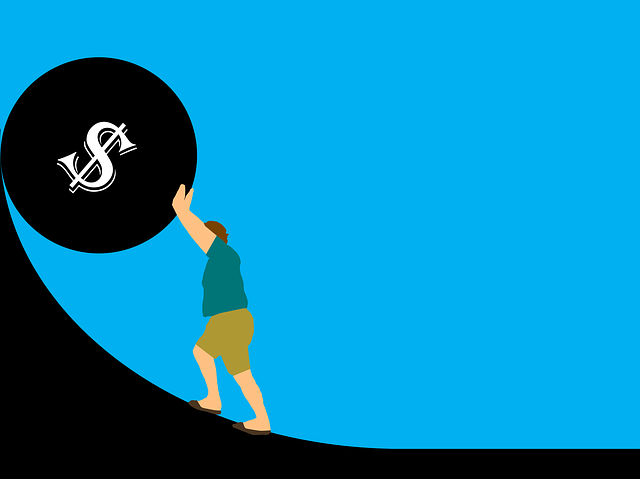Personal debt consolidation loans streamline multiple debts into one lower-interest loan, simplifying repayment and improving financial control. However, thorough comparison of lender terms, including interest rates, fees, and credit requirements, is crucial to ensure cost savings and suitable consolidation for individual needs. Strategies vary based on creditworthiness and goals, from high-interest credit card debt relief to unsecured loans for less-than-perfect credit.
Struggling with multiple debts? Personal debt consolidation loans offer a potential solution. This comprehensive guide explores the various types of consolidation options available, from unsecured loans to home equity lines. Learn about loan terms, benefits and drawbacks, and how to compare interest rates. Discover the best strategy for consolidating your personal debt based on your unique financial situation.
- Understanding Personal Debt Consolidation Loans
- Types of Debt Consolidation Options
- Evaluating Loan Terms and Conditions
- Benefits and Drawbacks of Each Method
- Comparing Interest Rates and Fees
- Choosing the Best Consolidation Strategy for You
Understanding Personal Debt Consolidation Loans

Personal Debt Consolidation Loans offer a strategic approach to managing multiple debts by combining them into a single repayment package. This process simplifies financial obligations and can significantly reduce interest rates, making it easier for borrowers to stay on top of their payments. The primary goal is to provide individuals with a manageable debt management solution that aligns with their financial situation and goals.
In the UK, debt help is readily available through various providers who offer tailored financial advice based on personal circumstances. These loans are particularly appealing as they often come without the need for collateral, making them accessible to many. This approach allows borrowers to focus on rebuilding their financial health while enjoying the benefits of streamlined debt management.
Types of Debt Consolidation Options

There are several types of debt consolidation options available to individuals struggling with multiple debts. One popular choice is personal debt consolidation loans, which involve taking out a new loan at a lower interest rate to pay off existing debts. This approach simplifies repayment by combining multiple debts into one, making it easier to manage. It’s particularly effective for those with credit card debts and short-term loans.
Another strategy is using mortgage debt relief programs, which can help homeowners reduce their mortgage payments through government-backed or non-profit initiatives. These programs often involve loan modifications or refinancing options, providing long-term debt freedom by adjusting payment terms and interest rates. For those with diverse debt profiles, including credit cards, mortgages, and other loans, exploring these consolidation methods could lead to significant financial relief and a clearer path to financial stability.
Evaluating Loan Terms and Conditions

When considering personal debt consolidation loans, it’s crucial to dissect and evaluate each lender’s terms and conditions thoroughly. This involves scrutinizing interest rates, loan tenure, and any hidden fees or charges associated with the debt restructuring strategies offered. Each lender will have different policies regarding these aspects, significantly impacting your overall repayment cost.
One-stop debt solution advocates often highlight the convenience of consolidating various debts into a single personal loan. However, it’s essential to ensure that this consolidation genuinely saves you money and simplifies your financial management. By carefully comparing rates and terms from multiple lenders, you can reclaim control over your finances and make an informed decision about which debt consolidation option best suits your needs.
Benefits and Drawbacks of Each Method

Benefits and Drawbacks of Each Method:
Personal debt consolidation loans stand out as a popular choice for many individuals seeking to unravel complex debt situations. The primary advantage lies in their ability to simplify multiple debts into one, making repayment more manageable by reducing monthly payments and potentially fixing high interest rates. This approach can significantly ease financial stress and provide clarity in managing personal finances. Furthermore, lenders often offer competitive interest rates and flexible repayment terms tailored to individual needs, contributing to the appeal of this option.
However, it’s not without drawbacks. Approval for personal debt consolidation loans may depend on creditworthiness, influencing access and potentially increasing costs for those with lower credit scores. Additionally, while consolidation offers reduced payments, it does not necessarily shorten the overall repayment period compared to strategies focusing on debt elimination. For some, the psychological aspect of having only one loan might lack the motivational impact needed to stay disciplined during repayment. Nevertheless, seeking a free debt consultation can help individuals weigh these pros and cons and choose the most suitable consolidation method for their unique circumstances.
Comparing Interest Rates and Fees

When comparing personal debt consolidation loans, one of the most critical factors to consider is interest rates and fees. These can significantly impact the overall cost of consolidating your debts. Many lenders offer various loan types, including secured and unsecured options (like no collateral loans), catering to different borrower needs and credit profiles. However, unsecured loans typically come with higher interest rates compared to secured ones, which require collateral.
Understanding the fee structure is essential for evaluating bad credit financing options as well. Some lenders may charge application fees, processing fees, or early repayment penalties. An expert in consolidation advice can help navigate these complexities and find a loan that best suits your financial situation while keeping costs low. By carefully reviewing interest rates and fees, borrowers can make informed decisions and choose the most cost-effective personal debt consolidation loan option.
Choosing the Best Consolidation Strategy for You

Choosing the right debt consolidation strategy is a personal decision that depends on your unique financial situation and goals. The first step is to evaluate the type of loans you currently have and their associated interest rates. If you primarily have high-interest credit card debt, a personalized loan with a lower fixed rate from a reputable lender might be an ideal solution. This approach can help you fix high interest rates and pay off your debts faster by consolidating them into one manageable payment.
Additionally, if you’re considering personal debt consolidation loans but have bad credit, there are options available that don’t require collateral. No collateral loans, often called unsecured personal loans, can be a viable choice for those who may not qualify for traditional loan types due to less-than-perfect credit scores. While these loans might come with slightly higher interest rates, they provide flexibility and the opportunity to improve your credit score over time through consistent payments.
When considering the best personal debt consolidation loan, it’s crucial to evaluate each option holistically. After understanding the types available and their associated terms, weigh the benefits and drawbacks of each method. Compare interest rates and fees meticulously to find the most cost-effective solution. Ultimately, choose a strategy that aligns with your financial goals and ensures long-term debt management success through personal debt consolidation loans.
